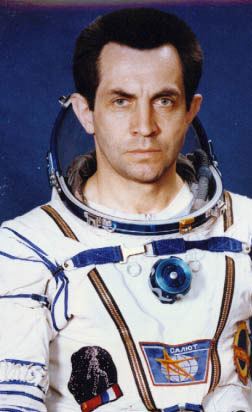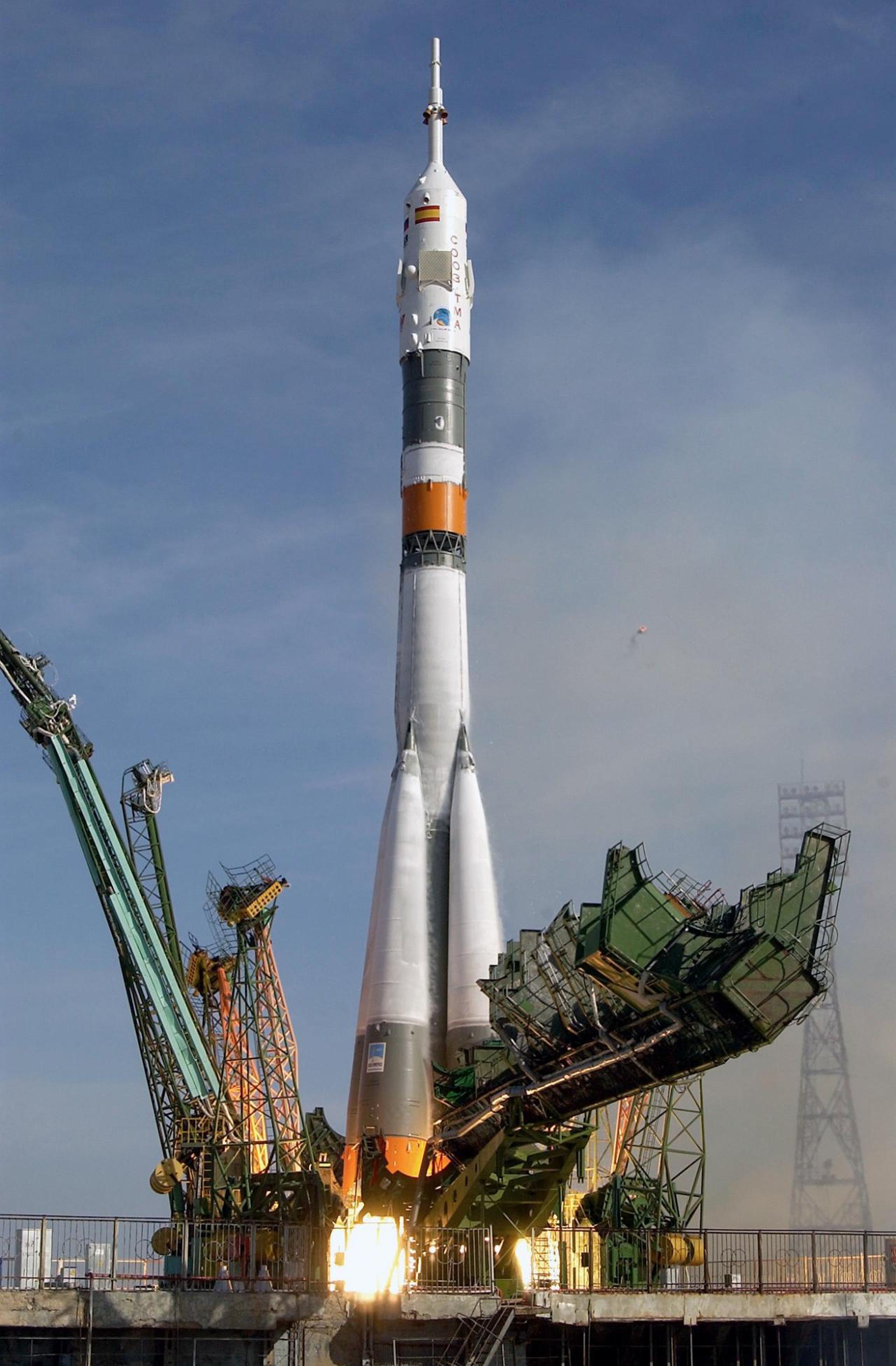Aleksandr Ivanchenkov
Russian - (RFSA)
Retired
Date of Birth: Sept. 28, 1940
Age: 85
Aleksandr Sergeyevich Ivanchenkov (Russian: Алекса́ндр Серге́евич Иванче́нков; born 28 September 1940 ) is a retired Soviet cosmonaut who flew as Flight Engineer on Soyuz 29 and Soyuz T-6, he spent 147 days, 12 hours and 37 minutes in space.
Soyuz-U | Soyuz 29
Russian Federal Space Agency (ROSCOSMOS) | RussiaBaikonur Cosmodrome, Republic of Kazakhstan
June 15, 1978, 8:16 p.m.
Status: Success
Mission:
Soyuz 29 was the fourth mission to visit the Salyut 6 space station and carried the the EO-2 expedition, which was the second long-duration crew for the station. The mission began on June 15, 1978, 20:16:45 UTC, launching Commander Vladimir Kovalyonok and Flight Engineer Aleksandr Ivanchenkov into orbit. They docked with the station the next day. During their 136-day stay on the station, EO-2 crew conducted various scientific experiments, performed an EVA and were visited by three uncrewed Progress cargo spacecrafts and two visiting crews, Soyuz 30 and Soyuz 31. EO-2 crew swapped the vehicles with the Soyuz 31 crew, and returned to Earth in Soyuz 31 spacecraft. The mission concluded with a safe landing back on Earth on November 2, 1978, 11:05:00 UTC.
Low Earth OrbitSoyuz-U | Soyuz 31
Russian Federal Space Agency (ROSCOSMOS) | RussiaBaikonur Cosmodrome, Republic of Kazakhstan
Aug. 26, 1978, 2:51 p.m.
Status: Success
Mission:
Soyuz 31 was the sixth mission to visit the Salyut 6 space station and carried the the EP-4 crew, which visited the long-duration Soyuz 29 resident crew. The mission began on August 26, 1978, 14:51:30 UTC, launching Commander Valery Bukovsky and Research Cosmonaut/Flight Engineer Sigmund Jähn, the first German cosmonaut, into orbit. They docked with the station the next day. During their stay on the station, crew conducted various scientific experiments. Soyuz 31 crew swapped vehicles with the Soyuz 29 (EO-2 expedition) crew, which allowed for a longer stay in orbit for EO-2. The mission concluded with a safe landing back on Earth on September 3, 1978, 11:40:34 UTC.
Low Earth OrbitSoyuz-U | Soyuz T-6
Russian Federal Space Agency (ROSCOSMOS) | RussiaBaikonur Cosmodrome, Republic of Kazakhstan
June 24, 1982, 4:29 p.m.
Status: Success
Mission:
Soyuz T-6 was the second mission to the Salyut 7 space station and the first to visit the long-duration Soyuz T-5 resident crew of the station. The mission began on June 24, 1982, 16:29:48 UTC, launching Commander Vladimir Dzhanibekov, Flight Engineer Aleksandr Ivanchenkov and Research Cosmonaut Jean-Loup Chrétien, the first French cosmonaut, into orbit. They docked with the station the next day. During their 7-day stay on the station, crew performed various scientific and medical experiments. The mission concluded with a safe landing back on Earth on July 2, 1982, 14:20:40 UTC.
Low Earth OrbitThe Roscosmos State Corporation for Space Activities, commonly known as Roscosmos, is the governmental body responsible for the space science program of the Russian Federation and general aerospace research. Soyuz has many launch locations the Russian sites are Baikonur, Plesetsk and Vostochny however Ariane also purchases the vehicle and launches it from French Guiana.
Electron
That's Not A Knife (DART AE)
Rocket Lab Launch Complex 2 (Launch Area 0 C) - Wallops Flight Facility, Virginia, USAPayload is a scramjet-powered hypersonic vehicle developed by by Australian company Hypersonix.
Falcon 9
Starlink Group 6-108
Space Launch Complex 40 - Cape Canaveral SFS, FL, USAA batch of 29 satellites for the Starlink mega-constellation - SpaceX's project for space-based Internet communication system.
Falcon 9
Starlink Group 17-26
Space Launch Complex 4E - Vandenberg SFB, CA, USAA batch of 25 satellites for the Starlink mega-constellation - SpaceX's project for space-based Internet communication system.
Falcon 9
Starlink Group 6-110
Space Launch Complex 40 - Cape Canaveral SFS, FL, USAA batch of 29 satellites for the Starlink mega-constellation - SpaceX's project for space-based Internet communication system.
Falcon 9
Starlink Group 6-104
Space Launch Complex 40 - Cape Canaveral SFS, FL, USAA batch of 28 satellites for the Starlink mega-constellation - SpaceX's project for space-based Internet communication system.



